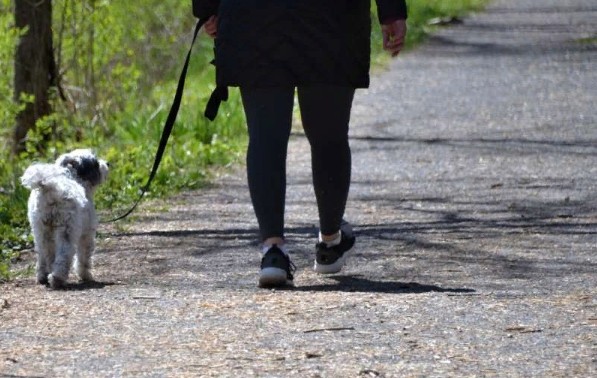People’s mental health and well-being have been severely impacted by the COVID-19 pandemic. Increases in depression, anxiety disorders, stress, sleep difficulties, and other disorders have been linked to restricted movement, loss, and isolation. For teenagers, the consequences have been even more severe.
What can we do to safeguard our well-being during this very trying time? Though a public health response is unquestionably required, one way we can help ourselves this year is to spend more time in nature.
Research on the health benefits of nature encounters has exploded in the last decade or two, confirming what many people already know intuitively: green areas are beneficial for mental well-being, whether you’re strolling outside, looking at stunning views, or simply watching nature movies.
This is certainly true for me. Even before the pandemic, I’d noticed that I wasn’t spending nearly as much time outside as I’d want, despite the fact that I knew from personal experience and scientific evidence that being in nature made me happier, kinder, and more creative.
So, starting in January 2020, I started taking regular walks in the hills surrounding my house, taking in the breathtaking scenery while giving my mind and body a workout. When the lockdowns started, I continued to take my daily walks and discovered that it made me feel less anxious, happier, and more productive.
I’m not the only one that thinks this way. Nature, according to new research, aided many people’s mental health during the pandemic. Here are some of the ways that being in nature can help us through this difficult time.
Nature is a stress reliever.
The fact that being in green settings reduces our stress is perhaps the most compelling study on the psychological benefits of nature. Experiments have shown that people who walk in a natural setting—for example, a forest or park—feel less stressed than people who walk in an urban setting, even when the amount of exercise they get is the same. To combat the consequences of modern urban living, some countries have established the concept of «forest bathing.»
Many people were forced to restrict their movement during the pandemic, making it more difficult to get outside. Others who could get out benefited much, while those who couldn’t benefit greatly from simply having sight of nature.
One study looked at how much time people spent outside before and during the pandemic, as well as whether their outside time increased or decreased. The researchers discovered that persons who spent more time outside were less stressed and had better psychological well-being than those who spent less time outside.
Another study indicated that spending time outside—even just having a natural view from one’s window—reduced stress and enhanced happiness during Israel’s lockdown. Even if people had suffered financially as a result of the pandemic—another stressor on top of an already stressful situation—this was true.
According to a new study, being in a green area has physiological effects on us, especially in places with abundant plant life and bodies of water or uneven terrain. People who were observed while walking through parks sweated less, breathed better, and had a higher heart rate variability (all signs of lower stress or better recovery from stress).
These and other studies led to the conclusion that exposure to nature is beneficial for stress management.
Nature restores our sense of well-being.
Many of us have spent a lot more time online in Zoom meetings or Zoom lessons since the pandemic began. While it’s fantastic to use technology to interact with others and get work done, staring at a screen for lengthy periods of time and trying to stay focused may be stressful.
It can therefore be beneficial to take a break from our screens by going outside. One of the key ways that being in natural or green surroundings provides our minds a rest is a recovery from information overload (online or otherwise), also known as attention restoration.
Our minds might be sharper after that respite. Exposure to nature, for example, can help us perform better on attention-demanding tasks and even lead to more creative problem-solving. Even a simulated nature encounter improved people’s cognitive performance and helped them recuperate from overstimulation.
What makes nature so healing? No one can be certain. However, a recent neuroscience study compared the brain activity of persons who spent time in a wooded garden with that of people who spent time on a traffic island and discovered that being in the natural setting allowed their brains to synchronize alpha and theta brain waves (related to calm and daydreaming, respectively).
This could explain why nature encourages people to pay attention in a calm manner, providing a welcome break from overstimulation—something we could all use these days!
Depression, anxiety, and physical ailments can all be alleviated by spending time in nature.
Nature may also assist us in improving our psychological health during COVID by preventing depression, anxiety, and physical issues (like not getting enough sleep).
People in a survey done in Spain and Portugal between March and May 2020 reported on their stress levels, physical complaints, and psychological distress, as well as their access to green areas such as private yards, views of nature, and public parks.
Researchers discovered that persons who had more access to nature had lower psychological distress and fewer physical problems than those who had less access after accounting for how much COVID lockdowns had affected people’s employment, income, and housing situation.
Similarly, a Tokyo study found that persons who were confined during the epidemic were less depressed, worried, and lonely, as well as happier and more content with their lives if they spent time in green settings (such as parks) or had a view of greenery from their window.
This could be especially important for those who are most impacted by COVID isolation, such as adolescents. Teens who spent more time outside during the pandemic did better on several mental health indicators than those who spent less time outside—especially if they resided in an urban community, according to a recent study.
One way that nature might help us improve our mental health is by allowing us to let go of repeated thought loops about what’s wrong with the world—a condition is known as «rumination,» which has been linked to despair, anxiety, and poor sleep.
Participants who spent more time connecting with nature in some way—for example, walking outside, biking, gardening, playing games or sports, or hanging out in a park—ruminated less, resulting in more pleasant feelings and fewer negative feelings, according to a recent study.
That’s probably why, according to a new analysis of much experimental research, nature-based recreational activities like park walking, trekking, rafting, and backpacking have favorable benefits on our mental health, including making us feel less melancholy and nervous.
We are happier and more content with life when we are surrounded by nature.
Nature should make us happier if it reduces stress, restores our depleted brains, and reduces rumination and other psychological distress signs. This has been proven in much previous research, including some of the ones described above.
Researchers utilized cellphones to collect data from over 20,000 people in real-time, evaluating how they felt at different periods during the day and using GPS to detect where they were in one huge study.
The researchers discovered that independent of the weather, activity, or who was with them, people felt better when they were outside in green or natural environments vs urban spaces. Another study indicated that residents in Puget Sound, Washington, were happier with their lives if they spent more time outside in nature.
This could be good news for those who have been particularly hard struck by the pandemic, such as our critical personnel.
A group of 71 Chinese health care workers and police officers were randomly allocated to watch short video clips of either natural or urban surroundings every day for five days, rating their well-being along the way. Those who saw natural scenes had more good emotions, fewer negative emotions, and a higher overall sense of well-being than those who watched urban scenes.
Researchers discovered that persons who felt more linked to nature (see themselves as part of nature and cared about the natural environment) had more positive moods, vitality, and life satisfaction than those who felt less attached.
All of this suggests that if we keep our connection to nature in some way during the epidemic, we will be happier and healthier. We can assist ourselves and our children cope with the pressures and strains of COVID isolation by giving ourselves and our children a dosage of «Vitamin N,» whether we garden, enjoy a view of nature out our window, visit neighboring parks, or even just watch a nature film. You’ll be glad you did, believe me.





Be the first to comment on "During a pandemic, there are four ways that nature can preserve your health"